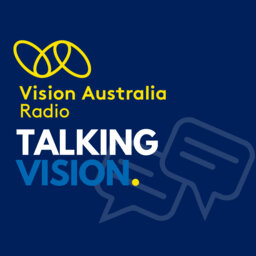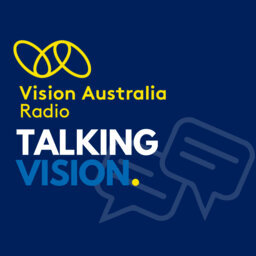Talking Vision 614 Week Beginning 21st of February 2022
On the show this week Sam has a quick chat with chief operating officer of the attorney-general’s department Cameron Gifford about the new digital statutory declaration form made accessible for users who are blind or have low vision, which is available on their website to download.
Then later on in the show you'll hear from deputy chair of Vision Australia and member of the federal government’s aged care council of elders, Bill Jolley, about the highlights from the first meeting, what he’s looking forward to in his time with the council and more.
In 1 playlist(s)
Talking Vision by Vision Australia Radio
Vision Australia Radiothon is on now. Donate via www.varadio.org and make a tax deductible donation …Social links
Follow podcast
Recent clips

Talking Vision 821 Week Beginning 2nd of March 2026
27:47

Talking Vision 820 Week Beginning 23rd of February 2026
27:55

Talking Vision 819 Week Beginning 16th of February 2026
28:59
 Talking Vision by Vision Australia Radio
Talking Vision by Vision Australia Radio